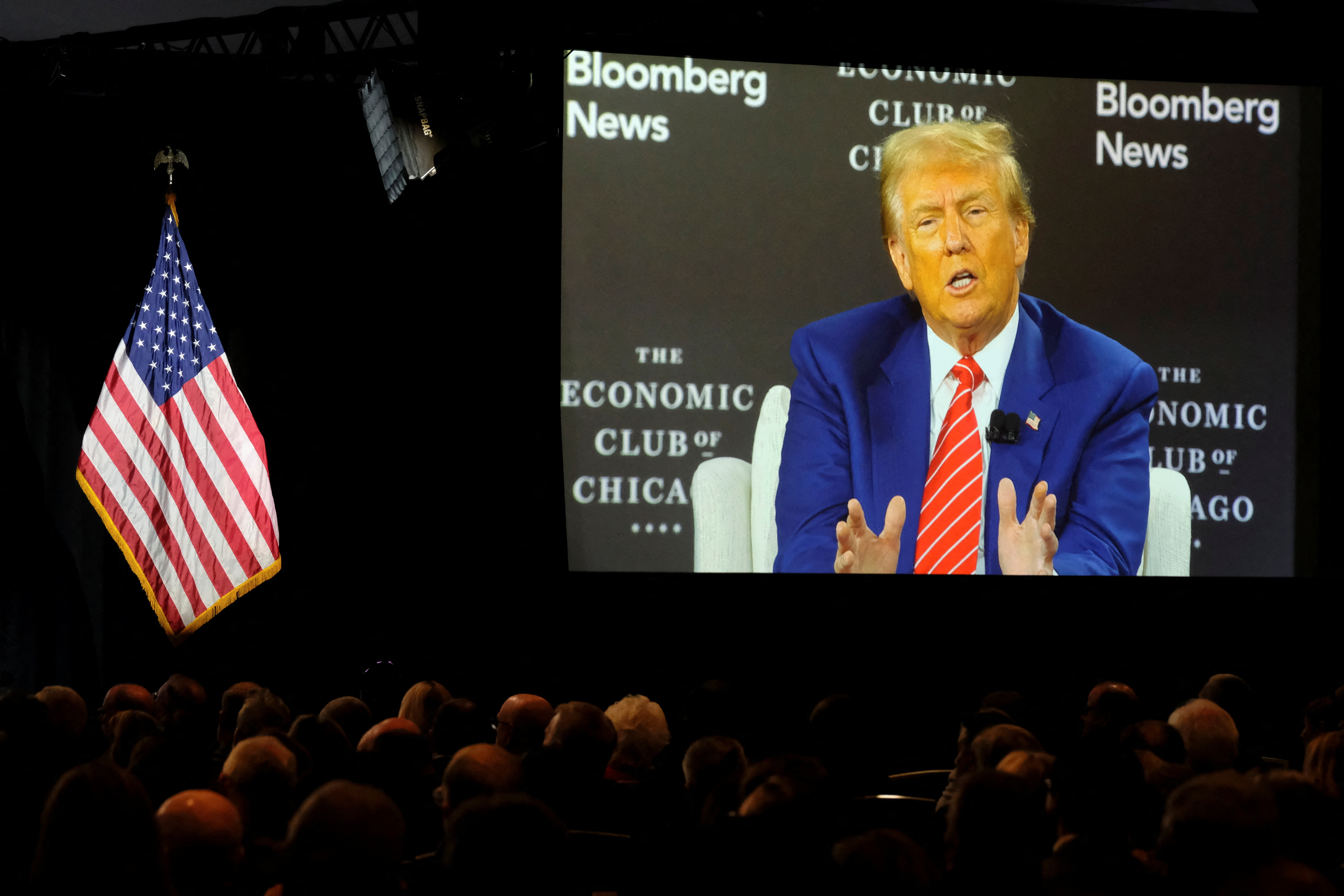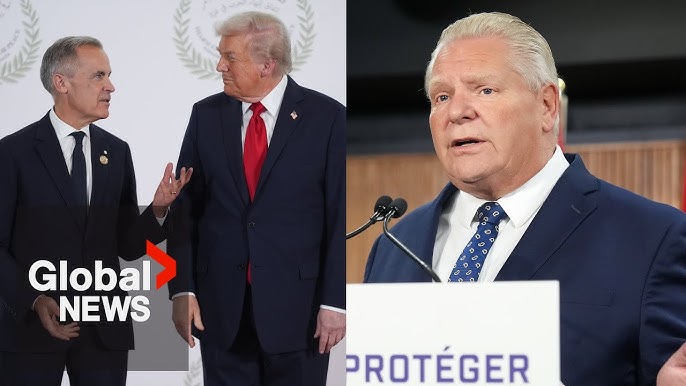 In a bold and defiant address at Toronto’s Empire Club, Ontario Premier Doug Ford delivered a powerful message that directly challenged President Trump’s escalating tariff threats. With humor and a sense of urgency, Ford’s speech signaled a turning point in Canada’s approach to U.S. economic policy, asserting that Ontario would not be bullied by Washington’s aggressive trade tactics.
In a bold and defiant address at Toronto’s Empire Club, Ontario Premier Doug Ford delivered a powerful message that directly challenged President Trump’s escalating tariff threats. With humor and a sense of urgency, Ford’s speech signaled a turning point in Canada’s approach to U.S. economic policy, asserting that Ontario would not be bullied by Washington’s aggressive trade tactics.

For months, Trump’s latest tariffs on steel, aluminum, and auto parts had cast a shadow over the Canadian economy, unsettling industries that rely heavily on cross-border trade. Ford’s remarks transformed a routine luncheon into a rallying cry for Ontario’s business leaders, emphasizing that the province would fight back against what he characterized as attacks on a partner, not a rival.
The stakes are high. Ontario exports over $80 billion worth of manufactured goods to the United States annually, and every new tariff threatens jobs and economic stability from Windsor to Hamilton. Ford’s response was swift and strategic: Ontario introduced a 25% surcharge on electricity exports to neighboring U.S. states, signaling that the province would no longer remain passive in the face of U.S. policy shifts. This move was not just symbolic; it underscored the deep interdependence of the two economies.

The effects of Trump’s tariffs have already begun to reshape Canadian industry. Rather than weakening Canada’s manufacturing sector, the tariffs have catalyzed a shift toward self-reliance. The Ontario Chamber of Commerce reported a 12% rise in new industrial permits, driven by investments in steel finishing, auto components, and clean energy materials. Canadian manufacturers are now looking to diversify their supply chains, reducing dependence on U.S. orders and seeking new opportunities in international markets.
Ford’s address also highlighted a growing sense of economic nationalism in Canada. By framing Ontario as a region poised for prosperity through its own talent and resources, he positioned the province as a formidable player in the global economy. Analysts noted that Ontario’s electricity grid supplies around 6% of New York State’s demand, making the new surcharge a significant reminder of how intertwined the two economies are.

The psychological impact of Ford’s speech cannot be understated. Business confidence in Canada has seen a steady rise, reversing months of uncertainty. Companies that previously hesitated to invest are now accelerating production to meet new domestic contracts, particularly in transportation and battery materials. The Ontario government is actively fostering connections between auto suppliers and local mining firms to ensure stable access to essential materials for electric vehicle manufacturing.
However, the broader implications of Ford’s stance extend beyond provincial borders. In Washington, officials were taken aback by a provincial leader openly challenging Trump’s policy. Governors from manufacturing states have expressed concerns about rising electricity prices and supply chain disruptions, highlighting the ripple effects of Ontario’s assertiveness.

As the applause faded in the Empire Club ballroom, it was evident that the tone of Canada’s relationship with the United States had shifted. Ford’s humor and direct language served a critical purpose: to announce that Ontario would defend its economy on its own terms. The coming months will test the viability of this strategy, but the electricity surcharge, advertising campaign, and surge in local investment all signal a significant shift toward economic independence amid a volatile North American market.
For the United States, the lesson is clear. While tariffs may provide short-term leverage, they can also lead to unintended consequences, driving partners toward self-protection rather than cooperation. What began as a push to re-industrialize America is inadvertently encouraging Canada to strengthen its own industrial base, not out of rivalry, but necessity.
Ford’s speech was not merely a rebuttal to Trump’s tariff threats; it was a declaration of economic sovereignty. As Canada navigates the complexities of trade relationships with superpowers, it is clear that the era of blind allegiance is over. Instead, Canada is stepping out of the shadows, ready to defend its own interests while maintaining a pragmatic approach to its relationship with the United States. The question now is whether this newfound assertiveness will endure in the face of ongoing challenges.






